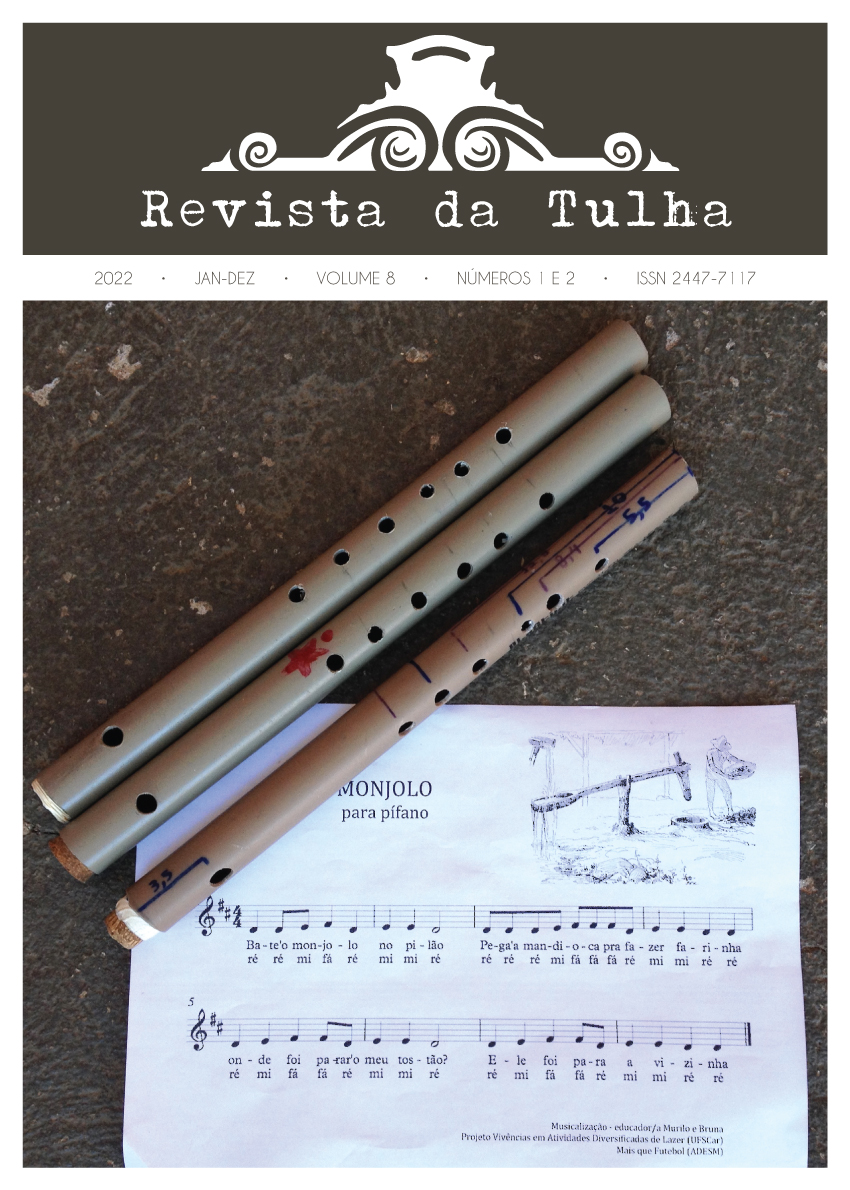Aura, gramática da performance e tecnicização: reflexão sobre obra e performance musical a partir dos pensamentos de Walter Benjamin, Nicholas Cook e Walter Wiora
DOI:
https://doi.org/10.11606/issn.2447-7117.rt.2022.200637Keywords:
Aura, Reprodutibilidade técnica, Estudos da Performance, Performance musical, Gramática da performanceAbstract
Walter Benjamin is one of the most influential thinkers about the understanding of the artistic phenomenon of the twentieth century, who stablished important concepts as aura and technicalogical reproductibility. Nicholas Cook, in turn, is one of the most important members of the so-called New Musicology, who has reflected on the phenomenon of the reified musical work and its primacy over musical performance. In order to make an analysis on a global history of music, the German musicologist Walter Wiora has suggested the division of history in four ages, from prehistory to the age of the great technological innovations and of the global cultural industry. This paper aims to make a reflection on musical performance in the scope of the classical music in contemporaneity, by establishing a relation between the thinking of those three authors. Based on Performance Studies, it is proposed here surmising performance as a work and, from that, making an analysis on the state of musical performance through the Benjaminian thought on art work in the age of technological reproduction. Thus we can establish a relation between the Benjaminian loss of the aura to the concept grammar of performance by Nicholas Cook and to the ideia of technicization and artificialization that Walter Wiora thinks about the avant-garde music from the twentieth century. Discussed the issue of musical performance in the context of reified musical work, it is necessary to make a reflection on the role of musicians originated from a colonized country on maintaining the paradigms of classical music.
Downloads
References
ARAÚJO, Bráulio Santos Rabelo de. O conceito de aura, de Walter Benjamin, e a indústria cultural. Pós, São Paulo, v. 17, n. 28, 2010, p. 120-143. Disponível em: https://www.revistas.usp.br/posfau/issue/view/3590. Acesso em 20/06/2022.
AURA. In: MICHAELIS, Dicionário Brasileiro da Língua Portuguesa. São Paulo: Melhoramentos, 2015. Disponível em: https://michaelis.uol.com.br/moderno-portugues/busca/portugues-brasileiro/aura/. Acesso em 07/2022.
BENJAMIN, Walter. A obra de arte na era de sua reprodutibilidade técnica. Tradução: Gabriel Valladão Silva. Porto Alegre: K&PM, 2019.
COHEN, Renato. Performance como linguagem: criação de um tempo-espaço de experimentação. 2. ed. São Paulo: Perspectiva, 2009.
COOK, Nicholas. Entre o processo e o produto: música e/enquanto performance. Tradução: Fausto Borém. Per musi, Belo Horizonte, n. 14, 2006, p. 5-22.
LIMA, Patrick Moreira de Souza. A criação de uma performance a partir da Fantasie de Jörg Widmann. São Paulo, 2019. 75 p. Trabalho de Conclusão de Curso (Bacharelado em Música). Departamento de Música, Escola de Comunicações e Artes, Universidade de São Paulo, São Paulo, 2019. Disponível em: https://www.academia.edu/43161131/.
SCHECHNER, Richard. O que é performance?. Tradução: Dandara. O percevejo, Rio de Janeiro, n. 12, 2003, p. 25-50.
SELIGMANN-SILVA, Márcio. A ‘segunda técnica’ em Walter Benjamin: o cinema e o novo mito da caverna (Prefácio). In: BENJAMIN, Walter. A obra de arte na era de sua reprodutibilidade técnica. Tradução: Gabriel Valladão Silva. Porto Alegre: K&PM, 2019, pp. 23-49.
WIORA, Walter. The four ages of music: from prehistoric man to electronic computer… a fresh view of the history of the world’s music. Tradução: M. D. Herter Norton. Nova York: W. W. Norton & Company, 1965.
Downloads
Published
Issue
Section
License
Copyright (c) 2022 Patrick Moreira de Souza Lima

This work is licensed under a Creative Commons Attribution 4.0 International License.
Authors retain copyright and grant the journal the right to first publication, with the work licensed under the Creative Commons Attribution License CC-BY-NC:
This work is licensed under a Creative Commons Attribution 4.0 International License.



